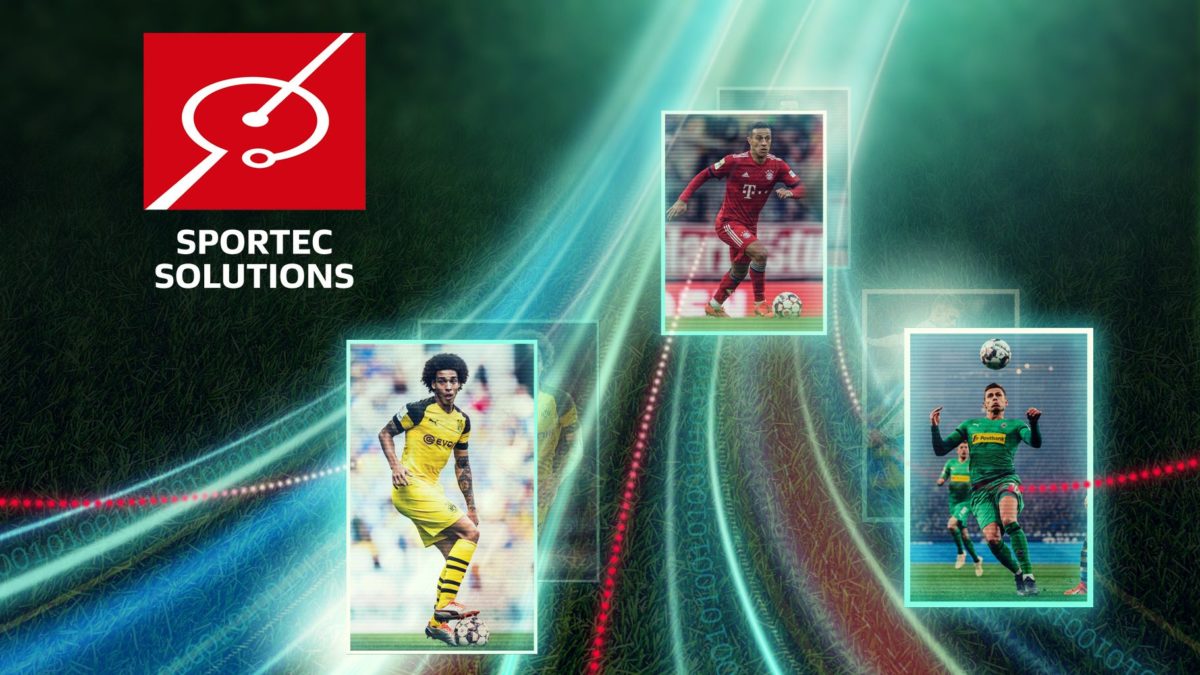Driving the DFL’s sports data revolution

05 March 2019 – The modern football fan wants to be informed as well as entertained. Supporters still yearn for the pleasures that arise from a goal being scored or a defender making a crunching tackle, but they also seek a deeper understanding of the game with the help of sports data. In the Bundesliga, Sportec Solutions is helping to satisfy this growing thirst for knowledge.
As a subsidiary of the DFL, the Cologne-based company has been collecting, storing and delivering official match data since the start of the 2017-18 season. As well as informing supporters, the process has proved to be hugely beneficial to clubs who can gain access to the data they need to give them a clearer picture of the strengths and weaknesses of both their own team and of the opposition, allowing them to focus on improving on-field performance.
Over the last one-and-a-half years, Sportec Solutions has become an established presence on the German football landscape, its growth and reach having expanded substantially. The company now deploys more than 100 freelance staff to collect and process data, further underlining its importance both within the DFL and globally as a leading media and content specialist. For example, if you connect all the passes of the last 1.5 years and start in Cologne, the last pass would reach the Golden Gate Bridge. Since the beginning of Sportec Solutions, scouting feed operators have travelled around the world the equivalent of 16.5 times and have monitored 1,059 football matches. This produced almost 70 days and 4.45 terabytes of video material. Sportec Solutions’ ability to be flexible and react quickly to an ever-evolving marketplace has been one of its core strengths, making the production of the world’s most comprehensive live sports data collection possible.
Giampiero Rinaudo, co-founder and CEO of deltatre, a global leader in the field of sports data technology and a joint venture partner with the DFL in Sportec Solutions: “As data storytelling and data analytics become increasingly relevant in sport, it is important that a leading sporting body such as the DFL develops these tools in-house while advancing further development and global marketing alongside strong partners.”
Sportec Solutions has been at the vanguard of several important recent developments. One is the introduction of the Commentary Live System that was rolled out at the start of the 2018-19 season. This complimentary tool provides Bundesliga match commentators with a wealth of extensive live data – including match statistics, player information, and audio assistance on the pronunciation players’ names – that they can then relay to viewers at home.
Sportec Solutions has also helped bring about greater transparency in the use of video assist technology. Spectators inside the stadium and viewers watching on television now get text updates on their screens explaining why the video assistant has been called to examine a particular incident, whether it is to check the legitimacy of a goal, penalty award, red card or to settle cases of mistaken player identity.
“Sportec Solutions has positioned itself at the forefront of innovation in the field of sports data production and analysis,” says Dr. Hendrik Weber, Managing Director of Sportec Solutions and the DFL’s Head of Technology & Innovation. “We see ourselves as a Centre of Excellence and will continue to build on our success to improve and enhance the use of data services and technology in the Bundesliga and beyond.”
Significant steps forward are already being taken. Tracking data, currently compiled with the help of a semi-automatic image recognition system, will expand in scope over the next three to five years as new algorithms and performance indicators are created. Working alongside leading providers, player movements can be traced to produce consistent and reliable sports performance data. The ability to virtually recreate scenes from a match on screen is also expected to improve as the technology develops, creating innovative examples of virtual or mixed reality.
The use of predictive statistics will also become more prevalent. Thanks to the growth of artificial intelligence and advanced statistical models, a player’s data can be extrapolated to provide an analysis of likely future performance. Sportec Solutions’ data modelling also helps with the creation of advanced player metrics, for example the use of expected goals as a measure of how many goals a player or team should have scored based on the quality of shots taken.
Data storytelling will also become more advanced, placing the numbers and their significance within a wider context. “Robo texts” such as match reports can be created using algorithms and software to interpret the data without the need for human input.